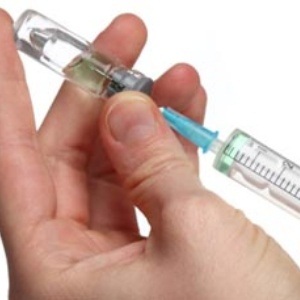
Anaphylaxis (allergic shock or anaphylactic shock) is the most severe form of an allergic reaction and can be life-threatening. It is a generalised allergic reaction, which often involves more than one body system (e.g., skin, respiratory, gastro-intestinal and cardiovascular).
It can be fatal within minutes, either through swelling that shuts off airways or through a dramatic drop in blood pressure. It must be treated as a medical emergency, requiring urgent medical attention.
Some individuals have a reaction, and the symptoms go away, only to return 2 to 3 hours later. This is called a "biphasic reaction." Biphasic anaphylactic reactions develop in as many as 20% of anaphylactic reactions. The second reaction can be less severe, equally severe, or more severe than the initial reaction, ranging in degree from mild symptoms to fatal reactions.
What causes anaphylaxis?
The three most common agents leading to severe anaphylaxis are certain foods, insect stings and medications. Common allergy triggers include:
Food
Eggs, nuts and seafood are the most common food triggers; however, any food can trigger anaphylaxis. Even trace amounts of food can cause a life-threatening reaction. Some extremely sensitive individuals can react to even the smell of a food (e.g., fish).
Insect Venom
Bee, wasp and jumper ant stings are the most common causes of anaphylaxis to insect stings. Ticks and fire ants also cause anaphylaxis in susceptible individuals.
Medication
Medications (e.g. penicillin), both over the counter and prescribed, can cause life threatening allergic reactions. Individuals can also have anaphylactic reactions to herbal or ‘alternative’ medicines.
Other
Other triggers such as latex or exercise induced anaphylaxis are less common and occasionally the trigger cannot be identified despite extensive investigation.
Food-Dependent Exercise-Induced Anaphylaxis
Food-dependent, exercise-induced anaphylaxis is very rare and occurs only when an individual eats a specific food and exercises within 3-4 hours after eating this food. Although any food may contribute to this form of anaphylaxis, foods that have been reported include wheat, shellfish, fruit, milk, celery, and fish.
Idiopathic Anaphylaxis
Idiopathic anaphylaxis is anaphylaxis in which no cause can be determined. This reaction may occur at night or after foods that have been eaten many times previously. Idiopathic anaphylaxis can be frequent (if there are 6 or more episodes per year or two episodes in the last 2 months) or infrequent (if episodes occur less often).
What are the signs and symptoms of an anaphylactic reaction?
The anaphylactic response occurs rapidly. It can begin within seconds or within the first 20 minutes after exposure. In rare instances, an anaphylactic reaction may occur up to 4 hours later. The faster the onset of the reaction, the greater the likelihood that it will be severe.
In cases of slow onset, the first symptoms within minutes of exposure to the agent are tingling of the hands and feet accompanied by a warm feeling, and fullness of the mouth and throat. Congestion of the nose and swelling of the eyes may also occur at this stage. This progresses to tightness of the chest, an itchy rash or dizziness, and then this indicates the onset of a severe reaction. It can take as little as 1-2 minutes for a mild allergic reaction to escalate to anaphylaxis.
Severe anaphylactic reactions are often abrupt and usually associated with severe tightness of the chest, difficulty breathing, dizziness, cramping diarrhoea, swelling of the face, lips and tongue, anxiety, fainting and collapse due to a drop in blood pressure. If left untreated, the body can go into shock and can lead to death.
In some instances, the onset of anaphylaxis may be the precipitation of acute severe asthma only, which progresses to severe respiratory distress either rapidly or over the next 6-12 hours. Any acute asthma attack precipitated by food, drugs or other obvious triggers should be taken very seriously.
There are a variety of medical conditions that may mimic anaphylaxis. These include heart attacks, anxiety attacks, choking and seizures. If you experience any unusual symptoms, it is vitally important to seek immediate medical attention.
Who is at risk?
Although anyone may develop an allergy at any time in their life, there are risk factors that make some individuals especially susceptible to anaphylaxis. Those at risk for experiencing anaphylaxis include people with a history of allergies, those that have asthma and a food allergy, and people who have previously experienced anaphylaxis.
One third of cases occur at home, 25% in restaurants and 15% at school or work. Commercially prepared foods account for 68% of nut reactions. Also, teens with food allergy and asthma appear to be at highest risk because they are more likely to dine away from home, are less likely to carry medications, and they may ignore or not recognize symptoms.
What is the best treatment for anaphylaxis?
Epinephrine (also called adrenaline) is the initial treatment of choice for anaphylaxis and can be used also during a life-threatening asthma attack. It reverses the negative cardiovascular effects of an anaphylactic reaction and helps to dilate the airways. For optimal effect, an injection of epinephrine must be given at the very beginning of a reaction. For this reason it is recommended that epinephrine is carried with the allergic person at all times. While life saving, epinephrine only provides supportive emergency treatment and cannot replace thorough assessment and treatment in hospital. If significant symptoms persist after the initial injection, repeat injections may be given at 10-20 minute intervals while on the way to the hospital. Antihistamines cannot replace epinephrine in the treatment of a severe anaphylactic reaction.
How can I prevent anaphylaxis from occurring?
Anaphylaxis is preventable and treatable. Knowing the triggers (e.g., food, drugs, insect bites) is the first step in prevention. If you are not sure of your triggers, please clarify this with your doctor as soon as possible.
Effective desensitization programs are available for insect sting induced anaphylaxis and for drug allergies. Such programs do not yet exist for food induced anaphylaxis, with some exceptions. Speak with your doctor about this.
Although you may try your best to avoid your triggers, accidental exposure is a reality. It is therefore important for the allergic person, his/her care giver and close family and friends to know what to do in the case of an emergency. It is always important to have a plan of action, since speed is of great importance. Wear a Medic Alert disk or bracelet stating your allergy, and always carry an adrenaline inhaler or syringe (Epipen) as well as rapidly acting anti-histamine tablets such as Phenergan.
What to do when an anaphylactic reaction occurs
- The most important thing is to stay calm.
- Check to see if the person is wearing a Medic-Alert bracelet, or ask the person what he or she is allergic to. Check whether the person is carrying any self-treatment, such as a pre-filled syringe of adrenaline (Epipen), or an asthma pump, to counter the effects of the allergic reaction. Help the person find and use the medication.
- If the person is conscious, help him or her into a sitting position to make it easier to breathe. Encourage slow and deep breathing. Stay calm and reassuring.
- Give an antihistamine pill, if it is available and the person can swallow.
- Call an ambulance or get the person to hospital immediately.
- If the person becomes unconscious, position him/her on their side. Loosen restrictive clothing. Give mouth-to-mouth breathing or CPR if needed.
Updated by Dr H Steinman, June 2007




 Publications
Publications
 Partners
Partners











